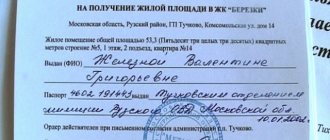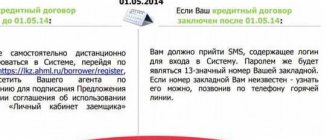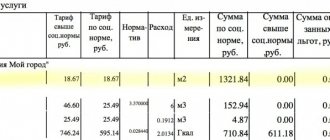The difference between operational management and free use
These are two different uses of the property. The main difference concerns the scope of rights to dispose of property. In the case of operational management, an organization that has received such a right can conduct commercial activities using the received property, lease it out and receive payment for it.
With gratuitous use, the property can only be used for personal purposes. All additional forms of use of these property objects must be agreed with their owner, if they are not specified in the contract. Also, free use does not give the right to conduct commercial activities.
Operational property management
Under an operational management agreement, municipal or federal property is transferred to the management of legal entities. for conducting production activities .
Rights to this property are limited . The organization that has received the property owns it with the right of operational management, that is, it uses it for the purposes of its production and economic activities within the framework of current legislation, the owner’s assignments and the purpose of the property.
Property received for operational management cannot be sold . transferred as a gift or pledge, invested in the authorized capital of another legal entity.
In addition, the owner has the right to confiscate property that has been excessively transferred or used for other purposes . The seized property is used by the owner at his own discretion.
Property for rent. received for operational management can only be done with the consent of the owner.
Features of operational management
Like any type of management activity, operational management has several features:
- Continuity to achieve results;
- The consequences of management can occur not only during its implementation, but also after the end of the contract;
- Associated with the achievement of a specific goal, measured in objective indicators (financial or other labor results);
- Underlies long-term plans.
The global feature is that operational management should lead to increased efficiency in the use of this property.
What is the difference between gratuitous use and operational management?
Today, property is often transferred for free use. The subject of the agreement in this case can be any property owned by the state, municipal organizations, individuals or commercial enterprises.
According to Art. 689 of the Civil Code of the Russian Federation, a contract of gratuitous use implies the transfer of an object for gratuitous use by one party to the other (lender to borrower).
The borrower undertakes the obligation, upon expiration of the contract, to return the subject of the agreement in the same condition in which it was received, taking into account normal wear and tear.
The object of such an agreement may be the following property:
- included in the state treasury;
- assigned to unitary organizations on the terms of operational management;
- assigned to state, budgetary, autonomous institutions on the terms of operational management.
Property is transferred for free use based on the results of trades/auctions/competitions held in accordance with the rules for conducting such events, as set forth in regulations.
Transfer of plots of land, residential and non-residential premises, and valuable property for free use can only be carried out with the written consent of the property owner.
The following may receive state property for free use:
- Federal and regional authorities.
- Local government bodies.
- Municipal institutions.
- Non-profit organizations.
- Individuals who have entered into a state agreement for the right to free use of property based on the results of an auction.
In simple terms, the transfer of property under a free use agreement makes it possible to use real estate for free, but not take any actions without the consent of the owner. The recipient of the property does not have the right to conduct commercial activities and receive income from the object of the agreement.
Management objectives and goals
The main goal of management is to implement a program for the use of property transferred to the management company.
Objectives are a more detailed clarification of the goal. It can be:
- Growth of financial indicators;
- Labor productivity;
- Reducing risk and injury at the enterprise;
- Prevention of deviant behavior among young people when it comes to managing the property of municipal institutions transferred to schools and other educational organizations.
All goals are formulated depending on the type of activity of the organization and the type of property that it received as operational management.
What documents are attached?
An integral part of the agreement for the right to operationally manage property is an appendix describing the transferred property, its properties, and features. Technical documentation is attached.

In the case of transfer of real estate, there is no need for an application; the address and cadastral number are sufficient.
When signing the contract, a transfer and acceptance certificate must be drawn up. It notes features, some nuances that may in the future have an impact on the rights of the parties.
How is the right to operationally manage real estate regulated?
Legislative norms governing the ownership of real estate and other rights to them are described in the Civil Code of the Russian Federation. In addition to general or private ownership of property, the law allows for its transfer to operational management. This possibility is specified in Article 296 of the Civil Code. The type of property, movable or immovable, does not matter.
It is important to register such property management. These requirements are spelled out in Article 131 of the Civil Code and the Law “On State Registration of Real Estate”.
What is operational property management?
Operational management of property is a limited property right that is applied in the territories of states that were formerly part of the USSR.
According to legislative norms, the owner of enterprises or other properties is the state. The list of objects transferred by the government department includes property (movable and immovable), the owner of which remains the state.
Federal enterprises and government agencies receive buildings and objects for limited use, thereby increasing their participation in the economic activity of the country.
With the right of operational management of state real estate objects, organizations and enterprises receive the right of disposal, in accordance with the procedure established by Art. 296 Civil Code of the Russian Federation; at the same time, they undertake to conduct activities within the framework of the intended purpose of the property taken into management and the competence of the institution.
The circle of organizations vested with operational management powers includes the following institutions and structures:
- institutions for the development of sports and mass culture;
- housing stock;
- educational and scientific institutions;
- enterprises related to the field of medicine;
- structures providing various public services (water, electricity, gas, heating), etc.
The owner of the property transferred to management is the municipality or the state, which allows the above organizations to dispose of their property. In case of violation of the rules of operation of property, damage, or misuse, the owner, represented by a government body, has the right to revoke the authority of the organization and seize the property.
What can be transferred to operational management? Such objects include municipal, state, private property, as well as the property of the rural and urban education fund.
The rules for using the right of operational management are regulated by the provisions of the Budget, Civil and Tax Codes, as well as federal laws and regional acts.
Permitted areas of activity in relation to property are regulated by the owner.
What is registration of operational management
Under the right of operational management, property is assigned for free use and implementation of its own activities. In particular, in this way state property is transferred to budgetary organizations - kindergartens, schools, etc.
But just transferring property is not enough. You need to register the rights themselves, that is, confirm their transfer. Law No. 218 defines registration as entering the relevant data into the Unified State Register of Real Estate.
Agreement structure
The contract for the right to operational management of property has approximately the following structure:
- information about the parties to the agreement;
- list of transferred property, its characteristics;
- information about real estate is taken from the register of rights to real estate;
- the value of the transferred property;
- a list of rights that the recipient legal entity receives;
- rights and obligations of participants;
- validity period, renewal procedure;
- the procedure for making changes to the text of the agreement;
- conditions for its early termination.

The transfer of real estate entails a change in the status of the land plot on which the object is located. This includes the unity of fate of the land plot and the real estate located on it.
The transfer of rights to the plot is formalized in the same agreement or in a separate agreement. Transactions are processed simultaneously.
Why and who needs registration?
Despite the legislative requirement to register assignment to the right of operational management of real estate, many people wonder about the mandatory nature of this procedure. Since it requires certain expenses, as well as the collection of a number of documents, it is not surprising that people want to do without it.
However, having received property and begun to use it, without registration, the institution does not receive the right to this property, which is fraught with difficulties in the event of controversial situations.
According to Law 218, registration is the only reliable confirmation of such right. After passing it, you can challenge the rights of operational management only in court.
How to register the right of operational management?
After the state transfers property under the right of operational management, the enterprise is obliged to register with Rosreestr and record this transaction in the Unified State Register database.
The registration procedure is as follows:
- Preparation of documents.
- Contact the MFC or Rosreestr.
- Submitting an application and documentation for the transfer of rights.
- Obtaining a certificate of registration of rights and making an entry in the Unified State Register.
- Obtaining an extract from Rosreestr.
List of documents for registration of rights in the Unified State Register:
- application of a legal entity for state registration and making an entry in Rosreestr;
- statutory documents;
- a certificate from the Taxpayer Identification Number (TIN) confirming the taxpayer’s registration;
- document with assigned statistics codes;
- identification card of the representative of the organization and a power of attorney certified by a notary to carry out registration actions;
- documents on transfer of property;
- documents for the transferred property (technical passports, cadastral papers);
- documents establishing the right to property transferred for use;
- certificates confirming the fact that the property is assigned to the applicant company.
The procedure for obtaining the right of operational management is fixed by the norms of the law of the Russian Federation; its implementation is possible only with the consent of the state and within the framework of the permitted activities of the enterprise.
So, the operational management system in today’s version of the Civil Code, although a little outdated, continues to function actively.
Operational management is a control mechanism created by the state or municipal authorities in order to generate adequate income and maintain production efficiency.
Procedure for registering rights
The right of operational management of real estate arises on the basis of the transfer of the property by the owner to the company that will manage it. To register, you need to submit a list of documents to Rosreestr. An application for registration is also submitted by the company to which such rights are transferred. You can submit your application in person or by mail. In addition, it is possible to apply for registration at the MFC or through the State Services portal. This type of registration is not subject to state duty. The procedure itself boils down to checking the submitted documents and entering the necessary information into the register.
Documents required for registration
Registration of lease of property under the right of operational management requires the submission of the following documents:
- Constituent documents of the enterprise;
- Personal documents of the applicant confirming his authority;
- Document on securing the object;
- Documents confirming the fact of transfer of property.
It is not necessary to submit additional documentation, namely an extract from the Unified State Register of Legal Entities, the state property register and a cadastral passport. They are considered additional documents and are submitted upon request.

If documents are submitted by a representative of the organization, he must have a valid power of attorney with the appropriate rights.
State registration of operational management rights
The right of operational management arises from the moment of its state registration (clause 5 of the resolution “On some issues” dated April 29, 2010 of the Plenum of the Supreme Arbitration Court of the Russian Federation No. 10, Plenum of the Supreme Arbitration Court of the Russian Federation No. 22).
This procedure is carried out by the Federal Service for State Registration, Cadastre and Cartography (Rosreestr).
To receive this service, you must submit a corresponding application to the named government agency in person or through an authorized representative. You can also submit documents through the multifunctional center or using official Internet resources: the public services portal or the Rosreestr website.
You can submit an application in electronic format on this page of the Rosreestr website. In the case under consideration, when choosing the purpose of the application in the form presented, select the item “Registration of other property rights” and then from the drop-down list - “Operational management rights”.
You can find more complete information on the topic in ConsultantPlus. Full and free access to the system for 2 days.
Note! The applicant in this case, as a general rule, is a legal entity that receives the said property right (subclause 1, clause 3, article 15 of the Law “On State Registration of Real Estate” dated July 13, 2015 No. 218-FZ).
The period for providing the service is a maximum (Clause 1, Article 16 of the said law):
- 7 working days if documents were submitted directly to the registration authority;
- 9 working days when submitting documentation through the multifunctional center;
- 3 working days - based on documents certified by a notary;
- 1 business day, if the documents specified in the previous paragraph of the list are submitted in electronic form.
You can learn more about the content of this property right using the article The right of economic management and operational management.
Property transfer procedure
Registration of the right to operational management of real estate involves going through the procedure of transferring the property itself. Owners of property assign objects to the institutions that received it for management. Often we are talking about the transfer of state property. In this case, the decision on its transfer must be made by the body with such powers.
In addition to registering the right of management, it is necessary to draw up an act of acceptance and transfer of property. Some municipal institutions adopt their own acts on the procedure for transferring property.
The difference between operational management and business management
The circle of persons and the principles on which the rights of operational management and economic management are based are in many ways similar to each other, but at the same time there are differences that distinguish these types of rights from each other.
The right of economic management gives the opportunity to own, use and dispose of the owner’s property, but only within the boundaries established by law and other regulations.
For example, a unitary enterprise can dispose of movable objects, but is limited in the rights to use the owner’s immovable property.
Economic management allows you to transfer property for further activities . In the future, the owner will be able to use this property at his own discretion, for example, to sell it. However, the decision is made not independently, but jointly with the management bodies of the enterprise. The subjects of economic management are any municipal and state enterprises.
Operational management includes government institutions and enterprises . Under an operational management agreement, property can be transferred for use only for a certain period, i.e. they cannot be completely disposed of: sold, donated, exchanged, etc.
The owner can create objects of operational management, determine to what extent to assign legal capacity, approve the necessary documents, appoint managers, liquidate or reorganize the enterprise without the consent of other managers.
The owner gives instructions to managers on how to use the property provided to them . The owner can direct individual objects included in the structure in the direction he needs for implementation. He has the right to distribute his property into several funds he needs. However, he cannot use the funds of one fund for the development of another.
If an enterprise has incurred debts, then the owner, and not the director of the enterprise, will also bear subsidiary liability for this.
The owner distributes the income of the enterprise without coordinating this issue with the manager. He is the sovereign master.
The manager, on the contrary, does not have the right to perform any actions without the consent of the owner . This is the fundamental difference between the rights of economic management and operational management.








